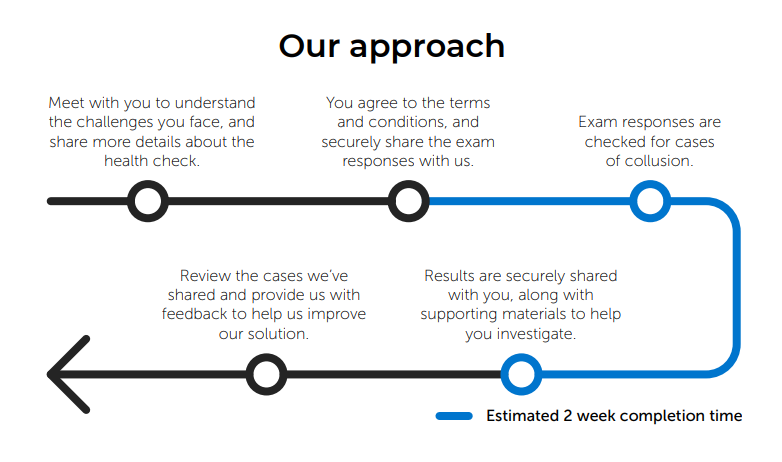The point of developing new products is to address problems that aren’t currently being solved. It focuses on what users need, so it’s good design practice to work with the users to figure that stuff out. This echoes what I talked about in a previous blog article: the importance of working with customers, not for them.
It’s much easier sharing early versions of solutions with customers who have been involved since day one. They tend to be supportive and positive about them because they are focused on their unmet needs, however, not every customer is the same (who knew!?). So, it’s important we understand what the market needs, not just one customer.
It's dangerous business when you hear some amazing feedback from one place because it can trick you in to thinking you’ve solved the problem. In response to this, one of our strict design principles here at RM is that “we’ll be saved by criticism, not ruined by praise”. It is incredibly important to be confident in your ideas before you propose them to the whole world, otherwise you’ll waste lots of resource and effort on something that no-one is particularly interested in.
That being said, you still need to propose it to a few, otherwise you’ll never know.
At RM, we’re doing exactly that with our exam malpractice detection concept. We’ve worked alongside a customer to develop proof of concept and it’s delivering huge amounts of value which is great, but we need to share it with other customers to see if it can help them as well.

We’re now trialling our solution with other customers who conduct their assessments in different formats, markets, and industries so that we can understand whether we can help them too.
This can be a bit scary though. What if we’ve completely missed the mark? What if it does nothing to help them? What if we find nothing at all? On the face of it, these questions seem like pretty good reasons not to do it, but they are actually the reasons why you should.
It is more helpful to our customers if we do find cases of suspected malpractice because they can investigate and continue to protect the integrity of their assessments. So far, we have found cases for every customer we’ve worked with. However, if any of the above happens, and we don’t succeed in finding cases of suspected malpractice, it’s okay because we’ll learn exactly what we need to do to improve it. By having an open dialogue and being completely transparent, we can find out what would make it better, what’s missing, and what we need to do to address the challenges our customers are facing.
We know that we’re in the early stages of development and we’re honest about that. We aren’t ready to polish it up and put it out to the whole world, but we’re getting there because we’ve been brave enough to give it to a few people and look for criticism, not praise.
Although praise is pretty nice when we get it, so don’t hold back.
If you are interested in a free collusion health check, or just want to know more, come and talk to us today:
 Gwyneth Toolan, Product Manager
Gwyneth Toolan, Product Manager
Email: gtoolan@rm.com